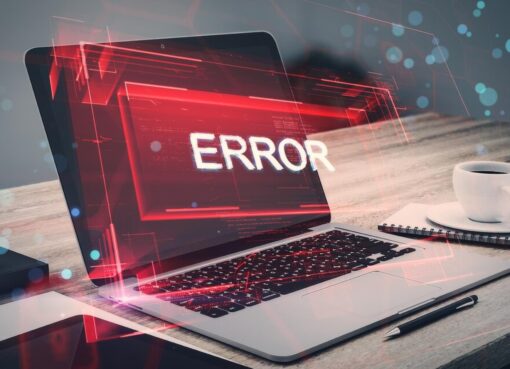How To Secure Your WordPress Website From Hackers Using Coding And SEO Techniques

Website security is very important. Many websites get hacked every day, and hackers target all websites they find. Keeping your site safe helps users stay happy and builds trust. WordPress is one of the most popular platforms online. Many people use it to create their websites.
It is easy to use, but it is also a target for hackers. Some attackers find ways to break into WordPress sites and cause problems. To stay safe, you must use coding methods and combine them with SEO strategies. Coding keeps hackers out. SEO also helps by keeping your site strong and visible online. They are important for making sure your website stays safe from problems.
Common Problems For WordPress Websites
Hackers try many ways to harm WordPress. Some methods are very dangerous. They create big risks for your website. Here are some common attacks hackers use against WordPress sites.
Brute force attacks are common. In brute force attacks, someone tries many password combinations. They do that until they guess your password. If your site has a weak password, it becomes very easy for them to break-in. To prevent this, strong passwords should be used.
SQL injections are another problem for WordPress sites. This happens when hackers attempt to add harmful code. They place this into your web form to access your database. As a result, they steal information or damage your files.
Malware infections are dangerous. Malware can quietly infect your site without letting you know. Hackers use malware to control your website and get data.
Backdoor access means someone entering your site without permission. Hackers create secret ways to come in the back and steal or destroy data.
SEO spam is also harmful. Hackers fill your website with bad links or keywords. This damages your website ranking. Google may even remove your site from search results if this happens.
Coding To Keep WordPress Safe
You can do many things to protect your WordPress site. Some are simple. Others take more steps. You can use good coding habits to stay secure online.
Keeping your WordPress core, themes, and plugins updated is very important. Old versions have many problems that hackers know about; new versions can make it harder for them to attack. You can automate updates to save time.
Having a strong login is another step. Many people use usernames like admin. This makes it easy for hackers to guess you. Avoid using such names. Always create strong passwords. To manage your passwords, try using password managers. Two-factor authentication is also helpful. This makes your site logins more secure.
Another smart step is limiting login attempts; hackers might not try logging in many times until they succeed. Use coding or plugins to limit these attempts on your site. Adding CAPTCHA to your login page is good too.
The wp-config.php file has important settings for your WordPress. Protect it well to keep your site safe. Change file permissions using .htaccess rules so others cannot make changes. You can take this file out of the root directory of your website. This makes it harder to reach.
Prevent directory listings to hide your files and folders from public view. You can add rules in your .htaccess file. Also, disable file editing from the dashboard to block others. Hackers might edit your files from there if they break in.
Using HTTPS and SSL keeps your site data encrypted. When you install SSL certificates, all the data that passes through your site becomes safer. Redirecting HTTP to HTTPS ensures users always see the secure version.
Regular backups are necessary. If something goes wrong, backups will help you recover everything. Backups should be automatic and off-site or in the cloud.
Security plugins for WordPress sites are very helpful. Plugins like Wordfence or Sucuri check your site for malware and other threats. They also set up firewalls to block harmful traffic.
SEO Steps To Help Security
If your website is not secure, it can affect your ranking. Google’s penalties can punish hacked sites. If malware or blackouts happen, search engines may lower your page. Users will also avoid visiting it.
HTTPS improves safety. Google uses HTTPS findings to improve search ranks. Having an SSL certificate will help you. You should always enable HTTPS.
Hackers often use black hat SEO tricks. They insert fake links or add keywords to harm your site. This makes your content look bad and shows fake links to the users visiting your website. Regular scanning with tools checks for fake links and keywords. Fix these issues quickly.
Site speed is important for both SEO and security. You can use secure Content Delivery Networks. Minify scripts to reduce load time. This also blocks slow attacks from bringing down your website.
Search crawlers read XML sitemaps to learn about your website. An XML sitemap makes it easy for bots to understand your structure. If your sitemap is updated, your website will show better results. Avoid publishing unwanted pages. They can hurt your ranks.
SEO tools like Google Search Console warn about hacked sites. Use these alerts to stay ahead. Plugins such as Yoast combine with SEO features to keep your site safe.
Maintaining And Watching
Keeping watch over your website is important. Set up emails to warn about problems quickly. This will help you react fast.
Logs are records that track your website activities. Check them for strange behaviours. Hack attempts might show here.
Speed tests and link checks ensure your website works well. Broken links make the website less useful and secure. Fix these issues often.
Stay Ahead Of Threats To Protect Your WordPress
Keeping WordPress secure is an important task. Hackers work hard to find ways in, so you must work harder. Using coding and SEO together is the smartest solution. They build a shield against attacks and improve visibility.
Always stay updated on security tips. Hackers create new ways of breaking in every day. Protecting your site is not a one-time job. It is a routine that you must follow often. Take strong steps to keep your WordPress site safe today. It is better to be ready than to fix problems later.




Leave a Comment